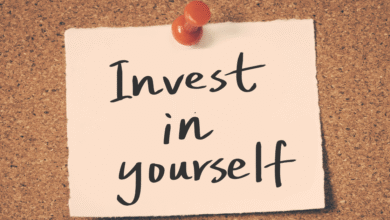Financial Questions To Ask Yourself That Will Actually Change Your Money Game

Let’s be real for a second. When was the last time you sat down and had an honest conversation with yourself about money? Not the “I’ll start budgeting next month” kind of talk, but a genuine, no-BS evaluation of where you stand financially?
Most of us avoid this because, honestly, it’s uncomfortable. Looking at your bank account after a weekend shopping spree or calculating how much interest you’re paying on credit cards isn’t exactly fun.
But here’s the thing: asking yourself the right financial questions is like holding up a mirror to your money habits. It’s the first step toward actually fixing what’s broken.
I’ve spent years studying personal finance, and I can tell you that the people who transform their financial lives aren’t necessarily the ones making six figures.
They’re the ones brave enough to ask themselves tough questions and act on the answers. So grab a coffee, get comfortable, and let’s walk through some financial questions that might just change everything for you.
Why Do You Need To Ask Yourself Personal Finance Questions?
Before we jump into the questions themselves, let’s talk about why this matters. You might be thinking, “Can’t I just follow a budget template and call it a day?” Sure, you could.
But that’s like following a workout plan designed for someone else’s body. It might help a little, but it won’t give you the results you’re after.
Personal finance questions force you to separate what you think is happening with your money from what’s actually happening. They shine a light on the gap between your financial goals and your daily habits. And honestly? That gap is where most people lose the game.
Think about it this way: if you don’t know why you’re spending $200 a month on takeout, how can you decide if that’s worth it? If you haven’t figured out what financial freedom actually means to you, how will you know when you’ve achieved it?
Questions create awareness. Awareness creates change. It’s that simple (and that hard).
16 Deep Questions To Ask Yourself To Change Your Finances Around
Alright, let’s get into the meat of this. These aren’t your typical “do you have a budget?” questions. These are the ones that will make you squirm a little, think a lot, and hopefully take action.
1. What Was The Last Money Mistake I Made?
Start here because it’s fresh in your mind. Maybe you bought those shoes you didn’t need last week, or perhaps you forgot to cancel a subscription you’re not using. Whatever it is, own it.
The point isn’t to beat yourself up. It’s to recognize patterns. If your last three money mistakes all involve impulse purchases on Amazon at midnight, you’ve identified a problem worth solving. Maybe you need to delete the app, remove your saved payment info, or just commit to the 24-hour rule before buying anything non-essential.
I remember when I realized my “last money mistake” was always related to eating out when I was tired. Once I saw that pattern, I started meal prepping on Sundays. Problem solved, and I saved about $300 a month. Not bad for a little self-awareness, right?
2. Do I Have Realistic Savings Goals?

Let me guess: you want to save more money. Join the club! But “save more” isn’t a goal. It’s a wish. There’s a difference.
A realistic savings goal has three things: a specific amount, a clear purpose, and a timeline. “I want to save $5,000 for an emergency fund by December 31st” beats “I should probably save something” every single time.
Here’s the reality check, though. If you’re making $3,000 a month and your expenses are $2,900, saving $1,000 a month isn’t realistic. It’s fantasy. You need to either increase your income, cut expenses, or adjust your timeline. All three are valid options, but you have to pick one.
Break down your goals into monthly or weekly targets. If you need $6,000 for a down payment in two years, that’s $250 a month. Suddenly, it feels less overwhelming and more achievable, doesn’t it?
3. How Do I Spend My Income?
If you can’t answer this question down to the last $50, we need to talk about budgeting. And before you roll your eyes, hear me out. Budgeting isn’t about restriction. It’s about intention.
When you track where every dollar goes, you stop wondering why you’re broke three days before payday. You see exactly where the leaks are. Maybe it’s $150 a month on coffee shops, or $80 on streaming services you barely use, or $200 on random stuff you can’t even remember buying.
Try a zero-based budget where you assign every dollar a job before the month starts. Your income minus your expenses should equal zero. This doesn’t mean you spend everything. It means you’re intentional about savings and investments too.
There are tons of budgeting apps out there like YNAB (You Need A Budget), Mint, or EveryDollar that make this process easier. Pick one and stick with it for at least three months. You’ll be shocked at what you discover.
4. What Plans Do I Have For My Children’s Education?
If you have kids, this question should keep you up at night (in a productive way). College costs are insane and getting worse every year. Waiting until your kid is 16 to start thinking about this is a recipe for stress and debt.
Let’s do some quick math. If you need $80,000 for your child’s education and they’re currently 5 years old, you have 13 years to save. That’s roughly $513 a month, not accounting for investment returns. If you invest that money and get a conservative 6% annual return, you’d only need to save about $350 a month.
Look into 529 savings plans, which offer tax advantages for education savings. Some states even give you a tax deduction for contributions. Every little bit helps when you’re talking about tens of thousands of dollars.
And hey, if college isn’t in the cards for your kids, that’s fine too. Trade schools and apprenticeships are valuable paths. The point is to have a plan that aligns with your family’s values and goals.
5. How Do I Live Without Debts?

Debt is like that friend who overstays their welcome. At first, it seems helpful (hello, credit card rewards!), but then it just won’t leave and starts eating all your food (or in this case, your income through interest payments).
If you’re serious about changing your finances, you need a debt elimination strategy. The debt snowball method has you pay off the smallest debt first for quick wins and motivation. The debt avalanche method focuses on the highest interest rate first to save more money long-term.
Personally? I’m a fan of the avalanche method because math doesn’t lie. But if you need those psychological wins to stay motivated, the snowball method works too. The best method is the one you’ll actually stick with.
Consider debt consolidation if you’re juggling multiple high-interest debts. Sometimes combining everything into one lower-interest loan makes the whole process more manageable. Just don’t use it as an excuse to rack up more debt on those newly freed-up credit cards. That’s a trap.
6. When And How Do I Retire?
Retirement feels like a million years away when you’re in your 20s or 30s, but time flies faster than you think. The question isn’t just “when” but “how” you want to retire.
Do you want to travel the world? Spend time with grandkids? Start a hobby business? Your retirement vision determines how much you need to save. The old rule of thumb says you need about 80% of your pre-retirement income annually. So if you’re making $60,000 a year now, you’d need $48,000 a year in retirement.
Max out your 401(k) contributions, especially if your employer offers matching. That’s literally free money you’re leaving on the table if you don’t take it. If you’re self-employed, look into a Solo 401(k) or SEP IRA.
Don’t put all your eggs in one basket, though. Diversify with a Roth IRA, taxable investment accounts, and maybe even some real estate if that’s your thing. The more income streams you have in retirement, the more secure you’ll be.
7. Do I Have Life Insurance Or Other Estate Plans For My Dependents?
Nobody likes thinking about death, but if people depend on your income, you need life insurance. Period. It’s not morbid; it’s responsible.
Term life insurance is usually the most affordable option for most people. It covers you for a specific period (like 20 or 30 years) and pays out if you die during that time. It’s straightforward and way cheaper than whole life insurance for the same coverage amount.
A good rule of thumb is to get coverage worth 10-12 times your annual income. So if you make $50,000 a year, aim for $500,000 to $600,000 in coverage. That sounds like a lot, but term life insurance is surprisingly affordable, especially when you’re young and healthy.
Beyond insurance, think about wills, trusts, and power of attorney documents. Yeah, it’s boring paperwork, but it ensures your wishes are followed and your family isn’t left scrambling during an already difficult time.
8. Do I Have Enough Money To Sort Out Emergencies?
Pop quiz: if your car broke down tomorrow and needed a $1,200 repair, could you pay for it without using a credit card? If the answer is no, you need an emergency fund yesterday.
Financial experts typically recommend 3-6 months of living expenses in an easily accessible savings account. If your monthly expenses are $3,000, you should have $9,000 to $18,000 saved. I know that sounds like a lot, but start small.
Set a goal to save $1,000 first. That covers most minor emergencies. Then build from there, adding $500 or $1,000 at a time until you hit your target. Keep this money in a high-yield savings account so it at least earns some interest while it sits there.
And please, actually use this fund only for emergencies. A sale at your favorite store is not an emergency. A broken water heater? That’s an emergency. Learn the difference.
9. When Will I Attain Financial Freedom?
Here’s a question that separates dreamers from planners. Financial freedom means different things to different people, but generally, it’s when you have enough passive income or wealth that you don’t need to work for money.
For some, that’s having $2 million invested generating $80,000 a year in dividends and interest. For others, it’s owning rental properties that cover all expenses plus some. There’s no single right answer.
Calculate your “freedom number.” What’s the minimum annual income you need to live comfortably? Multiply that by 25, and you’ve got a rough estimate of how much you need invested (using the 4% withdrawal rule). If you need $40,000 a year, you’d need $1 million invested.
Sounds impossible? It’s not. With consistent investing, compound interest, and time, it’s absolutely achievable. A 30-year-old investing $500 a month with an 8% average return would have over $700,000 by age 60. Bump that to $1,000 a month, and you’re looking at $1.4 million.
10. If I Could Go Back In Time, Is There Anything I Would Change About My Personal Finance?
This question is pure gold for learning from your mistakes. Maybe you’d start investing earlier, avoid that car loan for a vehicle you couldn’t afford, or not rack up $20,000 in credit card debt in your 20s.
Whatever your regrets are, use them as fuel for better decisions now. You can’t change the past, but you can absolutely change your future by not repeating those mistakes.
I wish I’d understood compound interest earlier. If I’d started investing in my early 20s instead of my late 20s, I’d have significantly more money now. But dwelling on it doesn’t help. Taking action today does.
Write down your top three financial regrets. Next to each one, write what you learned and what you’re doing differently now. This exercise turns regret into wisdom, which is way more useful.
11. What Would I Do If I’m Given $10 Million?
This isn’t just a fun daydream question. It reveals your true financial priorities and values. Most people immediately think of buying stuff: houses, cars, vacations. And sure, treat yourself a little. But what then?
If I got $10 million tomorrow, I’d invest at least $8 million in a diversified portfolio of index funds, real estate, and bonds. That would generate around $320,000 a year in passive income (using a conservative 4% return). I’d use some for experiences and helping family, but the bulk would work for me.
The point is to think beyond immediate gratification. Money is a tool, not just a means to buy things. How would you use that tool to create long-term security and freedom?
This question also helps you identify what you really want. If your first thought is “I’d quit my job,” maybe you need to think about changing careers. If it’s “I’d travel the world,” start budgeting for smaller trips now. You don’t need millions to start living aligned with your values.
12. How Would I Start Afresh If My Entire Finances Crumbled Overnight?
Okay, this one’s a bit dark, but stick with me. Thinking about worst-case scenarios helps you prepare and appreciate what you have.
If you lost everything tomorrow, what would you do? You’d probably focus on the basics first: food, shelter, income. You’d cut every unnecessary expense, hustle for any work available, and rebuild slowly but surely.
This mental exercise does two things. First, it shows you that you’re more resilient than you think. Second, it highlights what’s truly essential versus what’s just nice to have. Maybe you realize you don’t actually need that $150 monthly gym membership when you could work out at home.
It also motivates you to protect what you have. Diversify your income sources, keep that emergency fund topped up, and don’t put all your financial eggs in one basket. A little paranoia can be healthy when it comes to money.
13. What Decisions Would I Make If I Wasn’t Afraid Of The Future?
Fear holds us back more than anything else. Fear of failure, fear of judgment, fear of losing what little security we have. But what if you removed fear from the equation?
Would you start that business you’ve been thinking about? Invest in real estate? Go back to school for a higher-paying career? Change jobs for better opportunities?
I’m not saying be reckless. I’m saying be brave. There’s a difference between taking calculated risks and being stupid with money. Do your research, make a plan, and then take action despite the fear.
Some of the best financial decisions I’ve made scared me at the time. Investing a chunk of savings in the stock market during a downturn felt terrifying, but it paid off big time. Starting a side business while working full-time was exhausting, but it eventually replaced my job income.
Write down one financial decision you’d make if fear wasn’t a factor. Then write down the steps to make it happen safely and smartly. You might surprise yourself.
14. What Future Would I Have If I Continue With My Current Habits?
This is where brutal honesty comes in. If you keep doing exactly what you’re doing now, where will you be in 5 years? 10 years? 20 years?
If you’re spending more than you earn, you’ll be drowning in debt. If you’re not investing, you’ll reach retirement age with nothing saved. If you’re ignoring your financial health, you’ll wake up one day wondering where all the money went.
On the flip side, if you’re consistently saving 20% of your income and investing wisely, you’ll be in an amazing position down the road. Small habits compound over time, for better or worse.
Track your habits for a month. How often do you impulse shop? How much do you spend on convenience (takeout, delivery, etc.)? How much are you actually saving and investing? The numbers don’t lie.
If you don’t like the future your current habits are creating, change the habits. It really is that simple (though not easy, I know).
15. What Are My Big Financial Goals?
You need big, exciting goals to work toward. Not just “pay off debt” or “save money,” but real, meaningful objectives that get you fired up.
Maybe it’s buying a house in five years. Retiring at 55 instead of 65. Funding your kid’s entire college education. Taking a year off to travel. Starting a business. Building a million-dollar net worth.
Whatever your goals are, write them down with specific numbers and deadlines. “I want to save $50,000 for a house down payment by June 2028” is infinitely better than “I want to buy a house someday.”
Break these big goals into smaller milestones. If you need $50,000 in four years, that’s $12,500 a year or about $1,042 a month. Suddenly, it’s not some impossible dream. It’s a monthly target you can track and adjust as needed.
Review your goals quarterly. Are you on track? Do you need to adjust your timeline or strategy? Life changes, and your goals should be flexible enough to change with it.
16. What Do I Own Now That I Wouldn’t Have Bought With Its Current Market Value?

This question is all about buyer’s remorse and opportunity cost. Look around your house. How much stuff do you own that’s just sitting there collecting dust?
That treadmill you used twice? The expensive kitchen gadget still in the box? The clothes with tags still on them? All of that represents money you could have saved or invested instead.
Here’s the good news: you can often sell this stuff and recoup at least some of your money. Facebook Marketplace, eBay, Poshmark, and Mercari make it easier than ever to sell things you don’t use.
But more importantly, this question helps you make better buying decisions going forward. Before purchasing something, ask yourself: “Would I buy this again at full price if I already owned it and it broke?” If the answer is no, you probably don’t need it.
Decluttering your space often declutters your mind and your finances. Plus, there’s something satisfying about turning unused stuff into cash you can put toward actual goals.
Final Thoughts
Look, I get it. Some of these questions are uncomfortable. They force you to confront things you’d rather ignore, like debt, lack of savings, or poor spending habits. But that discomfort is where growth happens.
You don’t need to answer all 16 questions in one sitting. Pick one or two that resonate most with you right now and really dig into them. Write down your answers. Be honest, even if the truth stings a little.
The beautiful thing about personal finance is that it’s never too late to turn things around. Whether you’re 25 or 55, broke or comfortable, there’s always room for improvement. Every positive financial decision you make today builds a better tomorrow.
These questions aren’t just about money. They’re about the life you want to live and the legacy you want to leave. They’re about freedom, security, and peace of mind. And honestly? That’s worth a little uncomfortable self-reflection.
So grab a notebook, pour yourself another coffee, and start asking. Your future self will thank you. 🙂








